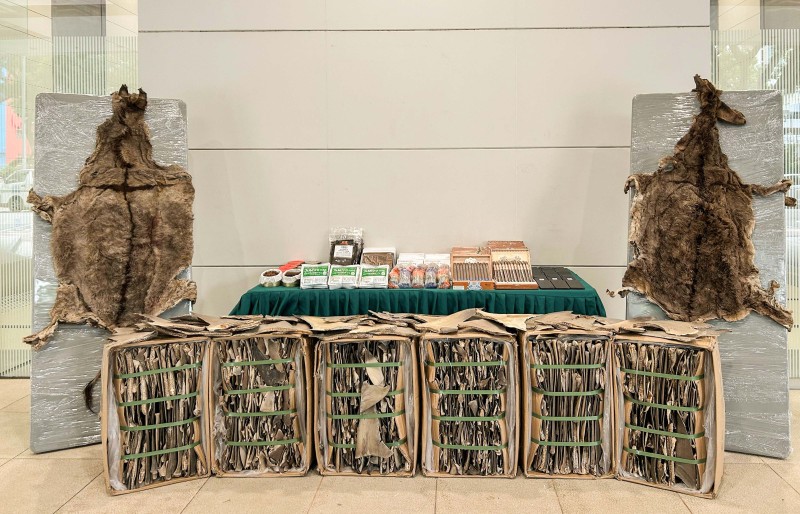Reported by
The Hong Kong Customs Service seized over 150 tonnes of donkey skins in a major operation intercepting two shipments, according to a statement released by the customs office late Monday. The shipments, intercepted on October 3 and October 7, also contained other smuggled goods, in total worth nearly $200 million.
The statement said that the skins were hidden in refrigerated containers bound for Taiwan. In addition to the donkey hides, the other shipment consisted of shark fins, cigars, mobile phones and suspected pharmaceutical products.
No arrests have yet been made in connection with the smuggling attempts.
Donkey skin is used in so-called Ejiao, a traditional Chinese remedy made with the gelatin in donkey skin which is supposed to slow down aging.
Estimated to be responsible for the killing of around 5.9 million donkeys every year, the surging demand for donkey parts has put the species’ populations around the world under threat, according to U.K.-based NGO the Donkey Sanctuary. African countries have become the main suppliers, along with Latin American countries such as Brazil.
The African Union enforced a continent-wide ban on the donkey skin trade last year, which has contributed to the decline in the number of donkeys on the continent, on the back of the growing demand for their skins in China.
Despite global calls for a ban on the donkey trade and an increasing number of countries banning it, the China Animal Agriculture Association announced last September that it needs increased access to donkeys to meet the demand for Ejiao.
"The ongoing threat to donkey populations from the illegal skin trade is an urgent crisis that requires immediate action,” said Anna Marry, head of global policy at animal-rights advocacy group Brooke, in response to the statement reportedly made by Wang Cunghong, the head of the Donkey Association at the China Animal Agriculture Association.
“Demand in China is driving up prices for donkeys, which has devastating effects on communities where these animals are sourced,” she added, calling for a global ban on the donkey trade and warning that Africa could lose half of its donkey population by 2040.






